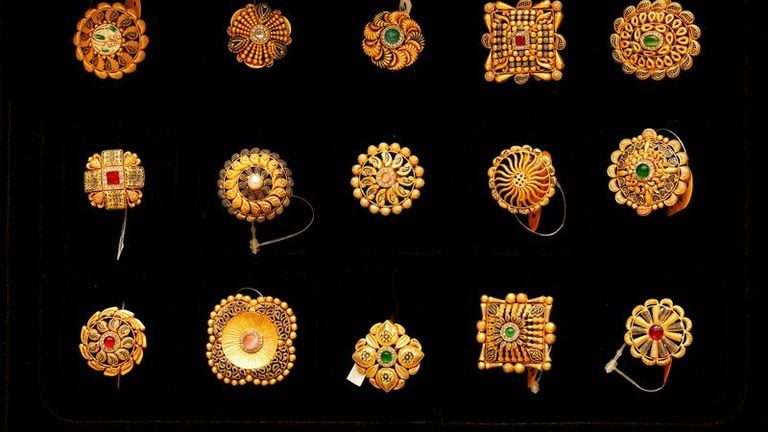(By : Kainat Rajput)
An authentic and respectful retelling from Muharram 1 to Ashura (10th Muharram)
Introduction: The Sacred Month of Muharram
The month of Muharram, the first month in the Islamic lunar calendar, is among the most sacred months in Islam. It is a time for reflection, piety, and remembrance. Among its days, the 10th of Muharram, known as ‘Ashura, holds profound significance in both Sunni and Shia traditions. For Muslims worldwide, it marks the martyrdom of Imam Hussain ibn Ali (RA) — the beloved grandson of Prophet Muhammad (PBUH) — and his companions in the plain of Karbala in 61 AH (680 CE).
Historical Context: The Rise of Yazid and the Refusal of Allegiance
Following the death of Muawiya ibn Abi Sufyan in 60 AH, his son Yazid assumed power, inaugurating the first dynastic rule in Islam. Yazid demanded Bay’ah (allegiance) from key Muslim figures, including Imam Hussain (RA).
Imam Hussain, being the grandson of the Prophet (PBUH), a revered figure among Muslims, and a guardian of Islamic values, refused to pledge allegiance. He feared that by endorsing Yazid — a ruler whose governance style was questioned by many scholars — he would be legitimizing tyranny and the erosion of prophetic values.
Reference:
Al-Tabari, Tarikh al-Rusul wa al-Muluk
Ibn Kathir, Al-Bidaya wa’l-Nihaya
Al-Masudi, Muruj al-Dhahab
Departure from Madinah to Makkah (Rajab 60 AH)
Imam Hussain left Madinah for Makkah with his family and some companions to avoid conflict. While in Makkah, he received letters from the people of Kufa, pledging their support and urging him to lead them against Yazid’s rule. Over 12,000 letters were reportedly received.
To assess the situation, he sent his cousin, Muslim ibn Aqeel, to Kufa. Initially welcomed, Muslim later faced betrayal, and was martyred by Yazid’s governor Ubaydullah ibn Ziyad.
Source:
Ibn Sa’d, Tabaqat al-Kubra
Al-Baladhuri, Ansab al-Ashraf
The Journey to Karbala (Dhul Hijjah 60 AH – Muharram 2, 61 AH)
Despite knowing the grave risk, Imam Hussain decided to proceed toward Kufa. He was intercepted near Karbala by a large army led by Hurr ibn Yazid al-Riyahi, who forced him to halt on the plains of Karbala on Muharram 2.
There, Hussain and his family were encircled, and water from the Euphrates River was blocked from them by the orders of Umar ibn Sa’ad, commander of Yazid’s army.
Source:
Al-Tabari, Tarikh al-Rusul wa al-Muluk
Ibn Kathir, Al-Bidaya wa’l-Nihaya
The Nine Days of Muharram: A Siege on Righteousness
From 1st to 9th Muharram, Imam Hussain and his camp faced worsening conditions. Despite multiple appeals, they were denied water. Imam Hussain spent these days in worship, prayer, and advising his companions.
He also gave a final sermon on the night of Ashura, urging his followers to leave if they feared for their lives. However, each one of them — about 72 men — chose martyrdom over surrender.
Reference:
Maqtal al-Husayn by Abu Mikhnaf (considered early, though later reviewed)
Shaykh Mufid, Kitab al-Irshad (Shia source)
The Day of Ashura (10th Muharram, 61 AH – October 10, 680 CE)
Battle Begins
On the 10th of Muharram, the small band of Imam Hussain’s followers bravely fought against Yazid’s army of nearly 30,000. They were killed one after another, including:
Ali Akbar ibn Hussain – his teenage son
Qasim ibn Hasan – his nephew
Abbas ibn Ali – his loyal brother and standard-bearer
Even Ali Asghar, his six-month-old infant, was killed with an arrow while in his arms.
Finally, Imam Hussain stood alone. Despite his exhaustion, thirst, and wounds, he fought valiantly before being martyred. His head was severed and raised on a spear. His body was trampled by horses under the orders of Shimr ibn Dhil-Jawshan.
Reference:
Al-Tabari
Ibn Kathir
Maqtal al-Husayn
Aftermath: The Captivity of the Ahlul Bayt
The surviving women and children, including Lady Zainab bint Ali and Imam Zain-ul-Abideen, were taken prisoner and marched to Kufa and later Damascus.
Despite their suffering, Zainab (RA) and others spoke boldly in Yazid’s court, exposing the oppression and unjust rule. These speeches left a lasting impact on Islamic consciousness.
Reference:
Ibn al-Jawzi, Al-Muntazam
Al-Kamil fi al-Tarikh by Ibn al-Athir
The Martyrs of Karbala
The total number of martyrs from Imam Hussain’s camp is generally accepted to be 72, though some narrations vary slightly. Their names are remembered with honor, and their sacrifice is viewed as the ultimate stand for truth against tyranny.
Karbala: A Legacy Beyond Sectarian Boundaries
While the Shia school of thought observes detailed rituals of mourning and commemoration, many Sunni scholars too recognize Karbala as a turning point in Islamic history, symbolizing truth, patience, and resistance against injustice.
The Prophet (PBUH) himself had foretold the martyrdom of Hussain:
“Hussain is from me, and I am from Hussain.”
(Sunan al-Tirmidhi, 3775; Sahih chain)
Conclusion: Karbala’s Eternal Message
Karbala was not a war for political power. It was a moral revolution that continues to inspire Muslims and non-Muslims alike. Imam Hussain’s (RA) stand teaches us:
Never compromise on truth.
Stand against oppression, even if you stand alone.
Sacrifice for justice is never in vain.
The month of Muharram, especially Ashura, is a time for Muslims to reflect on these values, seek spiritual renewal, and commit to the principles of the Prophet’s family.
Frequently Asked Questions
- Was Karbala a political or religious battle?
It was both — Yazid’s rule symbolized the corruption of Islamic values, and Hussain’s stand was to protect the spiritual essence of Islam. - Do Sunnis and Shias both honor Hussain (RA)?
Yes. While Shias observe more formal mourning rituals, both sects deeply revere Imam Hussain and condemn the injustice he faced. - Why is Ashura important in Islam?
Apart from Karbala, Ashura is also the day Prophet Musa (AS) and Bani Israel were saved from Pharaoh. The Prophet (PBUH) used to fast on this day, and it remains a day of significance for all Muslims.
Authentic Sources Cited
Al-Tabari, Tarikh al-Rusul wa al-Muluk
Ibn Kathir, Al-Bidaya wa’l-Nihaya
Al-Masudi, Muruj al-Dhahab
Shaykh Mufid, Kitab al-Irshad
Ibn Sa’d, Tabaqat al-Kubra
Al-Baladhuri, Ansab al-Ashraf
Abu Mikhnaf, Maqtal al-Husayn
Sunan al-Tirmidhi, Hadith 3775



